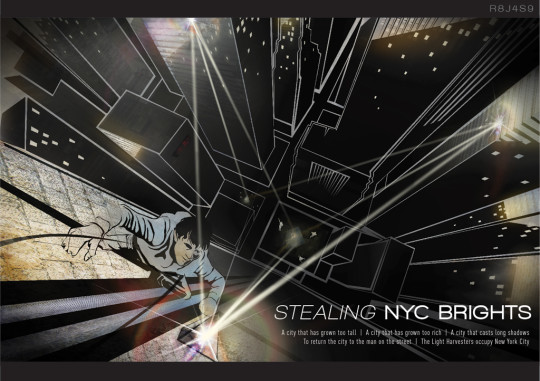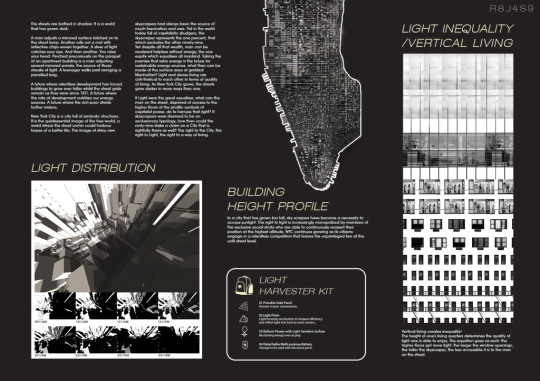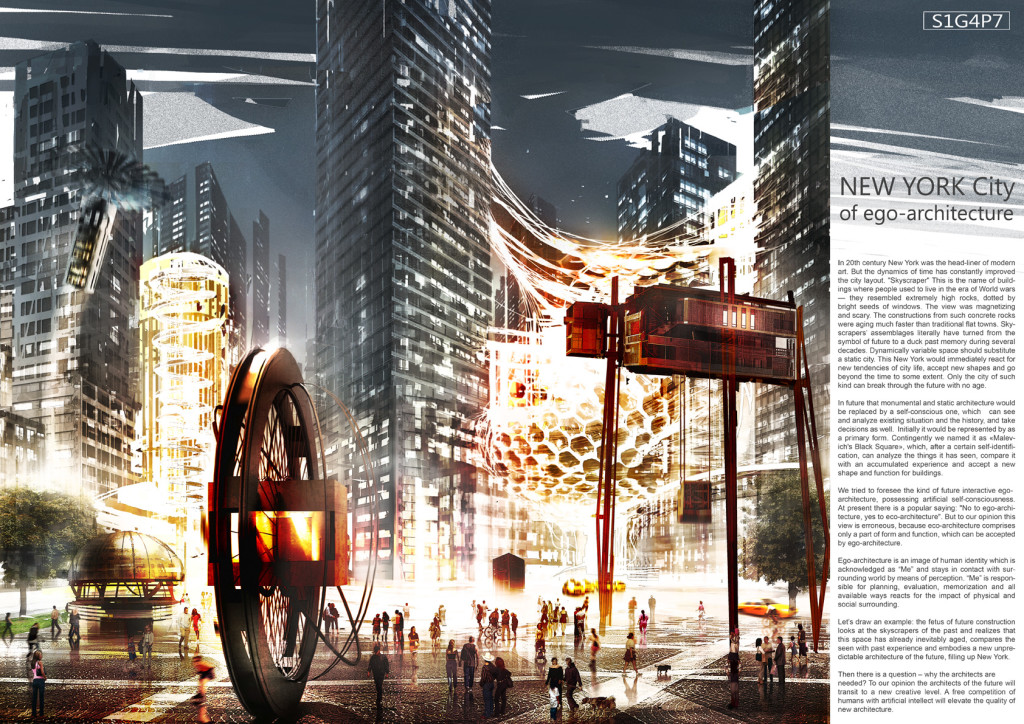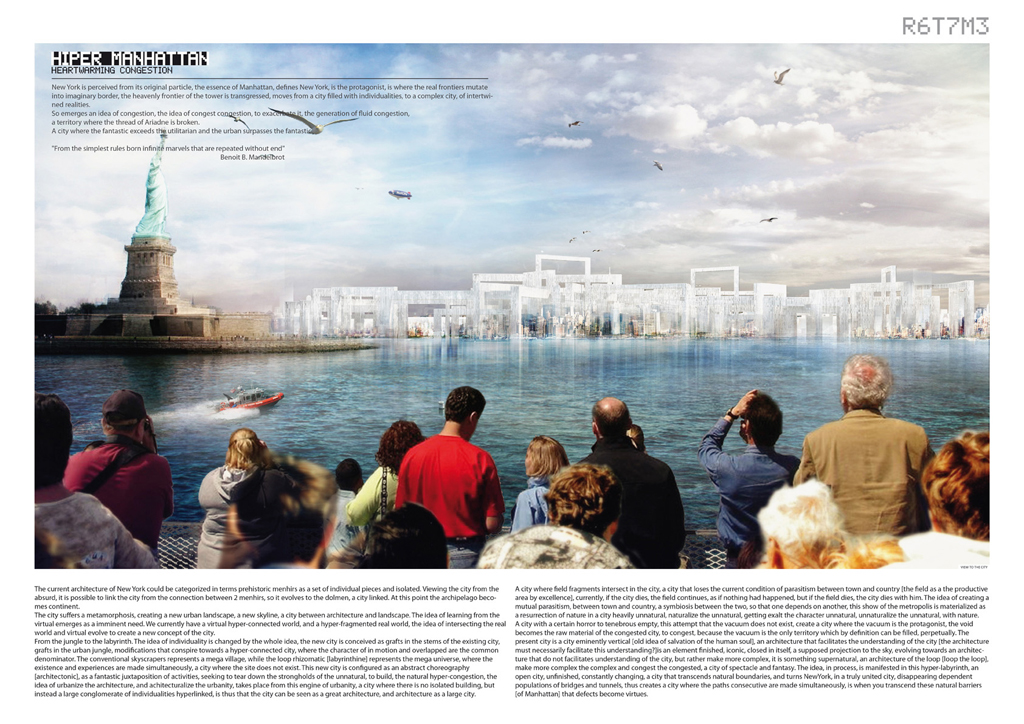Info:
Title: Stealing NYC Brights - Code: R8J4S9Contest: NY / 2012
By: H. Winata - J. Wen Hui Lee
Views: 2647 Likes: 0
Votes:
JOSHUA PRINCE-RAMUS4 EVA FRANCH I GILABERT2 ROLAND SNOOKS2 SHOHEI SHIGEMATSU4 ALESSANDRO ORSINI1 MITCHELL JOACHIM12.3
Stealing NYC Brights

 Stealing NYC Brights A city that has grown too tall. A city that has grown too rich. A city that casts long shadows. To return the city to the man on the street The Light Harvesters occupy New York City. The streets are bathed in shadow. It is a world that has grown dark – dark from a city that has grown too tall because of its riches. A man adjusts a mirrored surface latched on to the street lamp. Another rolls out a mat with reflective chips woven together. A sliver of light catches your eye. And then another. You raise your head. Perched precariously on the parapet of an apartment building is a man adjusting several mirrored panels, the source of those streaks of light. A teenager walks past swinging a panelled bag. A future where relentless development has forced buildings to grow ever taller whilst the street grids remain as they were since 1811. A future where the rate of development outstrips our energy sources. A future where the rich-poor divide further widens.
Stealing NYC Brights A city that has grown too tall. A city that has grown too rich. A city that casts long shadows. To return the city to the man on the street The Light Harvesters occupy New York City. The streets are bathed in shadow. It is a world that has grown dark – dark from a city that has grown too tall because of its riches. A man adjusts a mirrored surface latched on to the street lamp. Another rolls out a mat with reflective chips woven together. A sliver of light catches your eye. And then another. You raise your head. Perched precariously on the parapet of an apartment building is a man adjusting several mirrored panels, the source of those streaks of light. A teenager walks past swinging a panelled bag. A future where relentless development has forced buildings to grow ever taller whilst the street grids remain as they were since 1811. A future where the rate of development outstrips our energy sources. A future where the rich-poor divide further widens.
New York City is a city full of symbolic structures. It is the quintessential image of the free-world, a world where the street urchin could harbour hopes of a better life. The image of shiny new skyscrapers had always been the source of much fascination and awe. Yet in the world today full of capitalistic drudgery, the skyscraper represents the one percent, that which excludes the other ninety-nine.
Yet despite all that wealth, man can be rendered helpless without energy, the one equity which equalises all mankind. Taking the premise that solar energy is the future for sustainable energy sources, what then can be made of the surface area of gridded Manhattan? Light and dense living are anti-thetical to each other in terms of quality of living. As New York City grows, the streets grow darker in more ways than one.
If Light were the great equaliser, what can the man on the street, deprived of access to the higher floors of the phallic symbols of capitalist power, do to harness that right? If skyscrapers were deemed to be an exclusionary typology, how then could the ninty-nine stake a claim on a City that is rightfully theirs as well? The right to the City, the right to Light, the right to a way of living.






